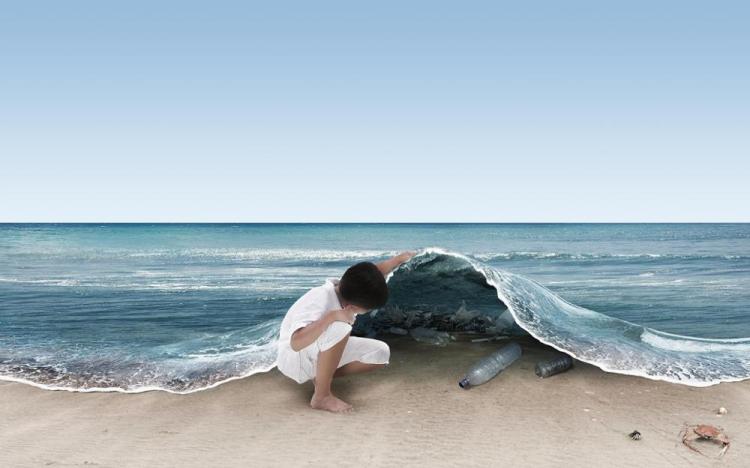The Invention of Morel by Adolfo Bioy Casares
My Rating: 4 of 5 Stars

Insane. Insane. Again. Insane.
“Then I resumed my efforts, moving to other parts of the wall. Chips fell, and, when large pieces of the wall began to come down, I kept on pounding, bleary-eyed, with an urgency that was far greater than the size of the iron bar, until the resistance of the wall (which seemed unaffected by the force of my repeated pounding) pushed me to the floor, frantic and exhausted. First I saw, then I touched, the pieces of masonry— they were smooth on one side, harsh, earthy on the other: then, in a vision so lucid it seemed ephemeral and supernatural, my eyes saw the blue continuity of the tile, the undamaged and whole wall, the closed room.”
‘Reasoned Imagination’ – That is how Borges describes this mind-boggling attempt of Adolfo Bioy Casares, in what, that my humble mind can ascertain, is a superlative member of post-modernist, abstract fiction canon.
Why does the mind battle its familiar boundaries in the thirst of alien waters? What rewards lie at the other end that compel acceptance of a torturous sentence, bordering on pragmatism and surrealism, pushing the soil beneath the feet to an unknown abyss? What does one achieve by undertaking a journey that robs him off his sanity and instead, plants a foreign temperament that forges alliance with none, not even with its owner? Oh no one really knows all the answers but the temptation to venture into such a world is one that has not spared a single, active mind.
A convict, fleeing from authorities, lands into an unfamiliar island, which appears to him, as time passes by, as uninhabited too. With no vessel to transport him back in sight, he toils with his survival instinct and somehow, is managing his days in waiting. But his unusual utopia is thrown out of gear when one day, he spots a young beauty at a cliff adjacent to a building, ludicrously named as museum, staring at the setting sun. He is, at once, jolted off his senses and his intuition pokes him with a warning that this could be a police trap. His initial tentativeness is however, weakened gradually, as the sight appears almost every day and with time, more of her friends begin filling his vision. Overpowered by curiosity, he inches towards the museum and in time, eavesdrops on conversations. Faustine, the woman.
As our narrator dwells deep into the mysterious appearance of Faustine, her appeal, her gang (especially Morel) and their purpose on the island, Casares begins tightening the grip, one knot at a time, around an outstanding plot, resting on magic, science and immortality. The fecundity of Casares’ vision not only lies in the masterly excavation of what can be a perennial memory (or truth?), but also why it should be. While the how is clearly debatable, it does enough damage to a normal brain to banish the usual attire and deep dive into the questionable with a restless but freelancer spirit. And literature, I feel, must always achieve this objective. And for this ambitious dilemma alone, I am glad I quarantined my sanity for a while. More ABC!
[Image courtesy aliexpress.com]
I have been wanting to read this book but unfortunately its not available ANYWHERE. Your review has only given me a reason to keep up my search. Brilliantly Crafted Review, Seemita.
LikeLiked by 1 person
Thank you, Abubakar! Its definitely a worthy read, if only to question our biases about fact and fiction. I read it as an e-book. But it is available in India as paperback as well. Have you tried Amazon’s global store?
LikeLike
No, Amazon takes ages to deliver in Pakistan. Can you send me the ebook ?
LikeLike
I can. I have an epub. Shall do for you?
LikeLiked by 1 person